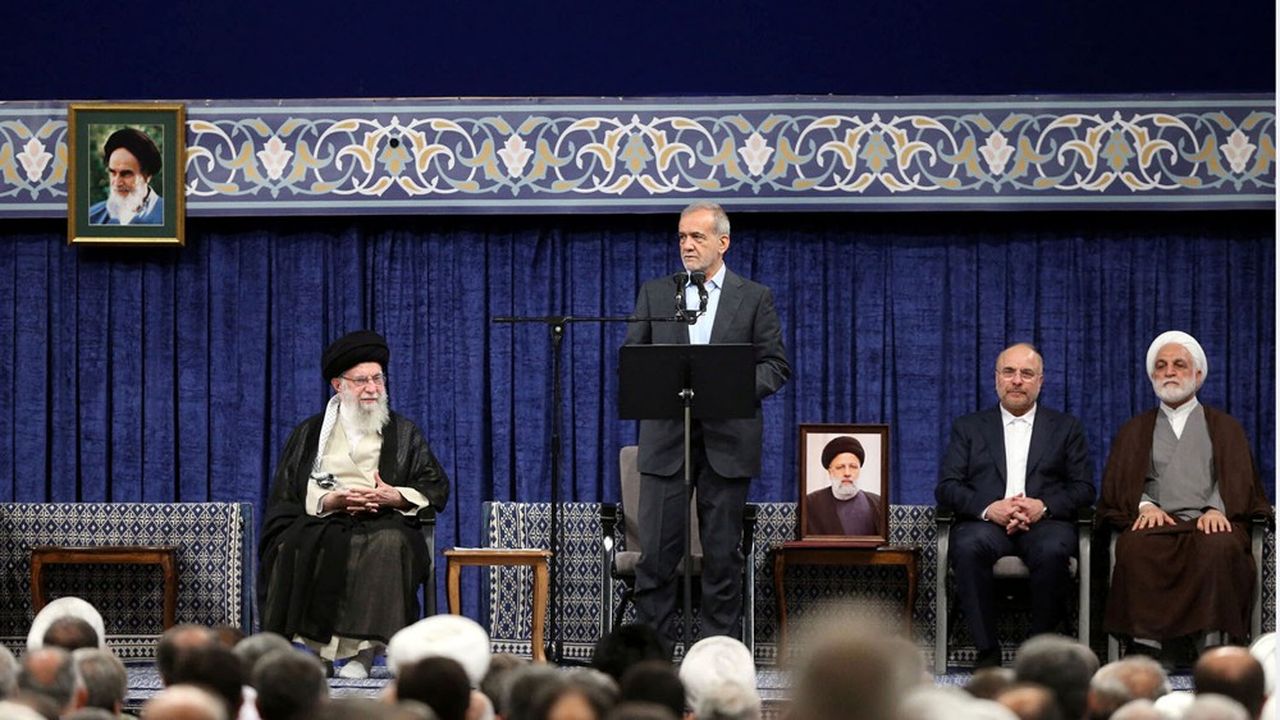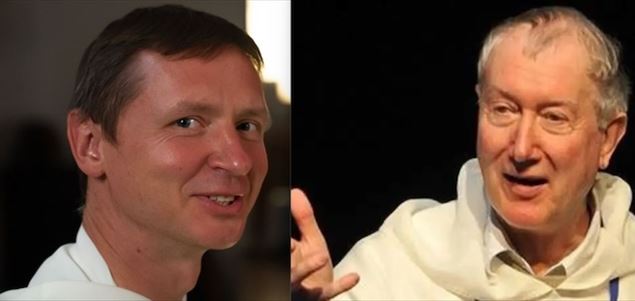
Iran’s new president, Massoud Pezeshkian, is set to be sworn in by parliament on Tuesday, beginning a four-year term. The election of the 69-year-old heart surgeon was the surprise election in a presidential election sparked by the death of Ebrahim Raisi in a helicopter crash.
The ninth president of the Islamic Republic of Iran is considered a “reformer” and more open to resuming dialogue with the West to bring the country out of its isolation. He nevertheless remains subject – according to the rule in force since the Islamic revolution of 1979 which imposes the supremacy of religion over politics – to the supreme guide Ali Khamenei who knighted him on Sunday. He comes to power in a new period of very high tension in the Middle East.
The attack that killed twelve young Druze on Saturday on a football field in a village in the Golan Heights, blamed on Hezbollah, makes a military escalation between Israel and Lebanon inevitable. Washington, from where Israeli Prime Minister Benjamin Netanyahu has just returned, promising to make Hezbollah “pay a high price”, is trying to limit its impact to avoid the outbreak of a new war in the region. On Monday, airlines began to suspend flights to Beirut in anticipation of reprisals orchestrated by Tel Aviv.
Volatile context
Hezbollah is Tehran’s armed wing in the Land of the Cedars, which also supports the Houthis in Yemen. Their militias have supported Hamas since the October 7 massacre and have multiplied attacks in Israel and the Red Sea. Iran, for its part, launched a missile and drone attack against the Hebrew state for the first time in April.
It is therefore a highly volatile context for the new president whose country is the sworn enemy of Israel and whose Lebanese ally is directly threatened. On Sunday, the Iranian Foreign Ministry warned the Hebrew state against the “unpredictable consequences” of new military “adventures” in Lebanon. The new president has not been left behind. On Monday, he declared during a conversation with Emmanuel Macron, “the Zionist regime will make a serious mistake with serious consequences if it attacks Lebanon.”
This environment immediately compromises Massoud Pezeshkian’s promise: to ease the economic difficulties of the Iranians by resuming talks with the United States on the nuclear issue in order to recover frozen assets and ease the sanctions regime, which has been circumvented until now with Chinese and Russian allies.
An opportunity to seize
This discussion is impossible for the moment: the United States is highly critical of the actions of Iran and its “affiliates” in the Middle East as well as its support for Russia in the war in Ukraine. In addition, the campaign for the election to the White House prevents the opening of any serious discussion on Iranian nuclear power. Finally, Tehran’s nuclear program seems so advanced and so lacking in transparency that the Board of Governors of the International Atomic Energy Agency (IAEA) adopted a resolution in early June presented by France, Germany and the United Kingdom calling Iran to order.
And yet, write in “Foreign Policy” Trita Parsi of the Quincy Institute and Sajjad Safaei, a researcher at the Max Planck Institute, there is an opportunity to seize with this president ready to reopen dialogue with Washington. Because there is finally a converging interest, that of “avoiding a full-scale war with Lebanon.” It would be a “geopolitical cataclysm,” they assure, which would cause enormous human and material damage on both sides, and which Israel could not lead without the help of the United States. “Pezeshkian’s victory offers an unexpected opportunity for a rapprochement between Iran and the United States,” they assure.
We will see how much latitude Massoud Pezeshkian has. He must appoint his government within a fortnight. He has already chosen Mohammad Reza Aref, another member of the reformist clan, as first vice-president. If he appoints Abbas Araghchi as foreign minister, one of the main architects of the 2015 Vienna nuclear deal (JCPOA), and keeps Mohammad Javad Zarif, a former foreign minister under Rouhani, as an adviser, he will have diplomats familiar with negotiations with the West.





